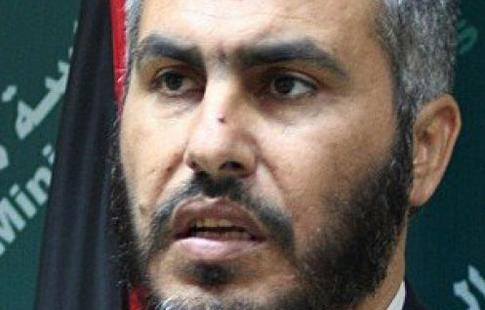Now that the US has finally decided that negotiations about negotiations are over, the real work will get under way.
Has the US actually plotted a new course for the peace process, or was Secretary of State Hillary Clinton’s Saban Forum speech simply rehashed merchandise, as some Palestinian Authority officials have stated? Is a return to proximity talks a retreat in the peace process? Is Israel’s refusal to again freeze all settlement building recognition that the two-state solution is no longer viable? Can a peace process get anywhere if the conflicting parties are not speaking to each other directly? These and many other questions will be answered in this brief Q&A on the peace process.
Click here to watch Secretary of State Hillary Clinton’s Saban Forum speech
Click Here to read the proceedings of the Saban Forum
Question: Is the US marketing old goods by going back to proximity talks? Answer: No. When it first proposed proximity talks, through the shuttle diplomacy of George Mitchell, the goal was to reach direct negotiations. This was a mistake, and precious time was lost on process issues rather than on issues of substance.
But the US has now decided that negotiating negotiations is over. Clinton announced that “we will push the parties to lay out their positions on the core issues without delay and with real specificity. We will work to narrow the gaps, asking the tough questions and expecting substantive answers. And in the context of our private conversations with the parties, we will offer our own ideas and bridging proposals when appropriate.”
Negotiations will now get under way for the first time since Barack Obama stepped into the White House.
Q: But how can they negotiate when they aren’t even speaking to each other? A: Menachem Begin and Anwar Sadat did not speak to each other directly in Camp David. The US team shuttled between them. It is true that the experts, advisers and other political leaders did speak to each other directly, and that as the talks progressed, direct talks between the parties took place. President Jimmy Carter then took charge of the process. He set the agenda, he proposed the bridging ideas and he, with his team, drafted the Camp David agreement.
The US should now do the same. Mitchell or any other US mediator should not shuttle between Jerusalem and Ramallah every couple of weeks. The Israeli and Palestinian negotiators should be invited to a secluded location in the US for intensive negotiations for as long as it takes, with the US mediator setting the agenda, assigning tasks and drafting the agreement.
Q: Will the US always be willing to assist in the peace process? A: Thomas Friedman, the New York Times journalist suggested this week that since the parties are less interested in negotiations than the US, the US should simply step down. “The most valuable thing that President Obama and Secretary of State Hillary Clinton could do now is just get out of the picture – so both leaders and both peoples have an unimpeded view of their horrible future together in one state if they can’t separate.”
No one knows if Obama will follow Friedman’s advice, but given America’s problems and his desire for a second term, it certainly seems logical that America’s patience in the Middle East will not last forever.
Q: What will happen if there are no negotiations? A: With growing international support, it seems that the Palestinians have already come to realize that ending the occupation and securing a state are no longer negotiable.
In this respect, the issue of two states for two peoples has already been decided. The gradual but consistent recognition of Palestine will continue, with two South American states doing so last week, four European countries upgrading the status of the PLO representative to ambassador, and an EU Council and foreign ministers proposing that within a year, 27 EU member states will also recognize Palestine.
Prime Minister Salam Fayyad confirmed there was no need to unilaterally declare a state because that was done by Yasser Arafat in 1988. Countries are now being asked to recognize the state in the 1967 borders, with final borders to be negotiated and Jerusalem to be the capital of both states. No, this will not change the reality on the ground. But Israel would be very wise to also agree to recognize the state of Palestine in secure and negotiated borders.
Q: Prime Minister Binyamin Netanyahu states that Israel must continue to control the Jordan Valley to guarantee its survival. Is this true? A: The introduction of ballistic missiles to the West Bank, even of the homemade Kassam type, can be a strategic threat because of their ability to reach civilian aircraft landing at Ben-Gurion Airport. Likewise, anti-aircraft weapons in the West Bank are a much greater threat than similar weapons in Gaza.
The Jordan Valley is about 20 percent of the West Bank, and its primary land reserves are for development and future refugee resettlement; no Palestinian leader will agree to a state without it. The strategic threat of not ending the occupation is far greater and more difficult to deal with than the problem of preventing the smuggling of missiles into the West Bank.
Today the Israel-Jordan border is secured by joint security measures. After peace with the Palestinians, the Jordanians will continue to secure their side of the border. The line today is protected by sophisticated electronic devises monitored mainly by a couple of hundred young female soldiers, with several platoons of soldiers patrolling the border, intelligence gathering, drone surveillance, etc.
In negotiations and in private talks Palestinians have already indicated a willingness to include Israelis in joint patrols, or in a multinational force.
Cooperation with Jordan will continue. Many possibilities exist for dealing with other real security needs. The excuse for continuing to control Palestine’s eastern border is not related to real security but to the psychological difficulty of letting go.
We cannot have peace while continuing to control Palestine’s external borders. No people will agree to live in a sovereign cage. Not us, and not them.


